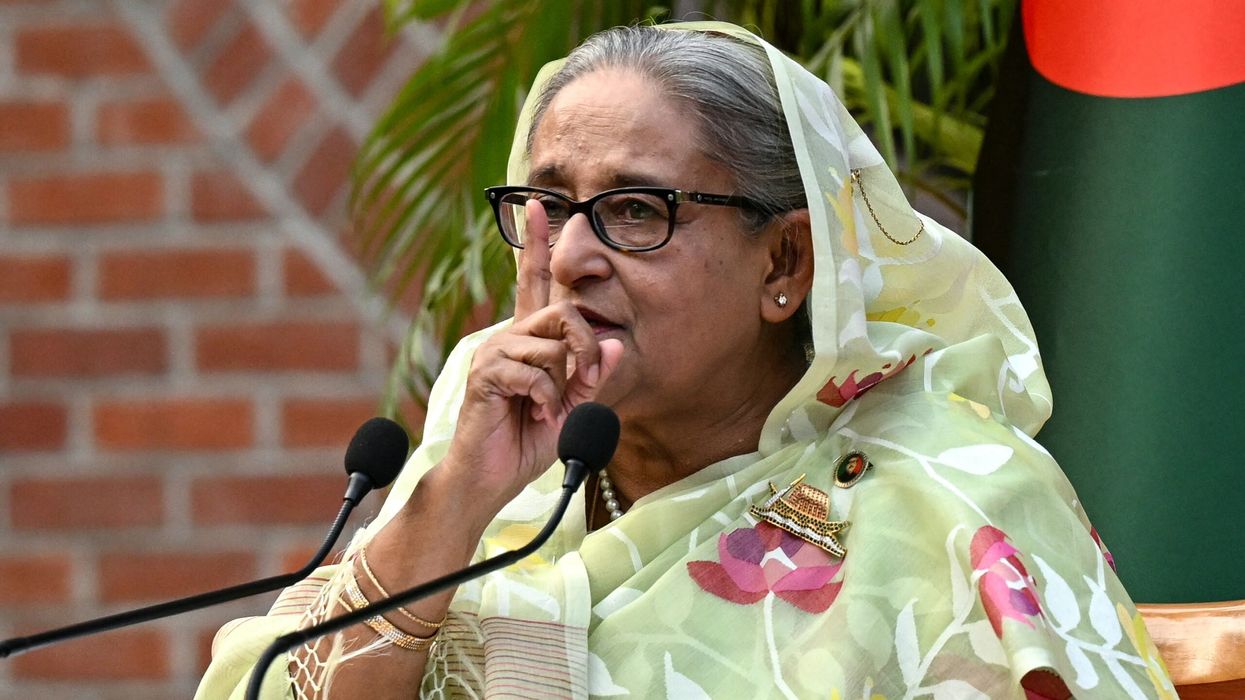BANGLADESH’S influential Islamist coalition has demanded the abolition of a government women’s commission, introduced as part of reforms to systems established under former prime minister Sheikh Hasina, who was ousted by student-led mass protests in August 2024.
Hefazat-e-Islam, a platform of religious seminaries, wants the cancellation of the Women’s Affairs Reforms Commission, set up by the caretaker government of Nobel Peace prize winner Mohammed Yunus.
Azizul Haque Islamabadi, a senior Hefazat-e-Islam leader, said the group opposed the commission’s recommendation for ending discriminatory provisions against women.
“Ensuring equality is a western ideology,” Islamabadi said.
“The commission recommended a uniform family code instead of Muslim family law, which governs inheritance, marriage, divorce, and other issues.”
Jamaat-E-Islami, the largest Islamist political party, also demanded the immediate cancellation of the recommendations.
“Recommending initiatives to ensure equality between men and women is a malicious effort to distort Islamic ideology,” Mia Golam Parwar, secretary general of Jamaat, said in a statement.
Yunus said after the commission submitted its recommendations last Saturday (19) that “women all over the world are looking at us”.
Hasina’s government was blamed for extensive human rights abuses and she took a tough stand against Islamist movements during her 15-year rule.
She is in exile in India, refusing to return to Dhaka to face charges of crimes against humanity for the killing of hundreds of protesters during the unrest that toppled her government.
Bangladesh has seen a surge of open support for Islamist groups since her ouster.
Women, in particular, have expressed concern since the cancellation of several women’s football matches, the vandalising of Sufi shrines and the blocking of several cultural events deemed “anti-Islamic”.
However, Shirin Parvin Haque, the head of the commission, said they were determined to press ahead.
“Let them speak their minds,” Haque said. “We have proposed recommendations we believe are best for upholding women’s rights, we will stick to that,” she added.
















 John Dramani Mahama welcomes Modi on his arrival in Accra last Wednesday (2)
John Dramani Mahama welcomes Modi on his arrival in Accra last Wednesday (2) South Africa’s president Cyril Ramaphosa, Brazil’s president Luiz Inacio Lula da Silva, Modi and China’s premier Li Qiang at the Brics summit last Sunday (6)
South Africa’s president Cyril Ramaphosa, Brazil’s president Luiz Inacio Lula da Silva, Modi and China’s premier Li Qiang at the Brics summit last Sunday (6)

